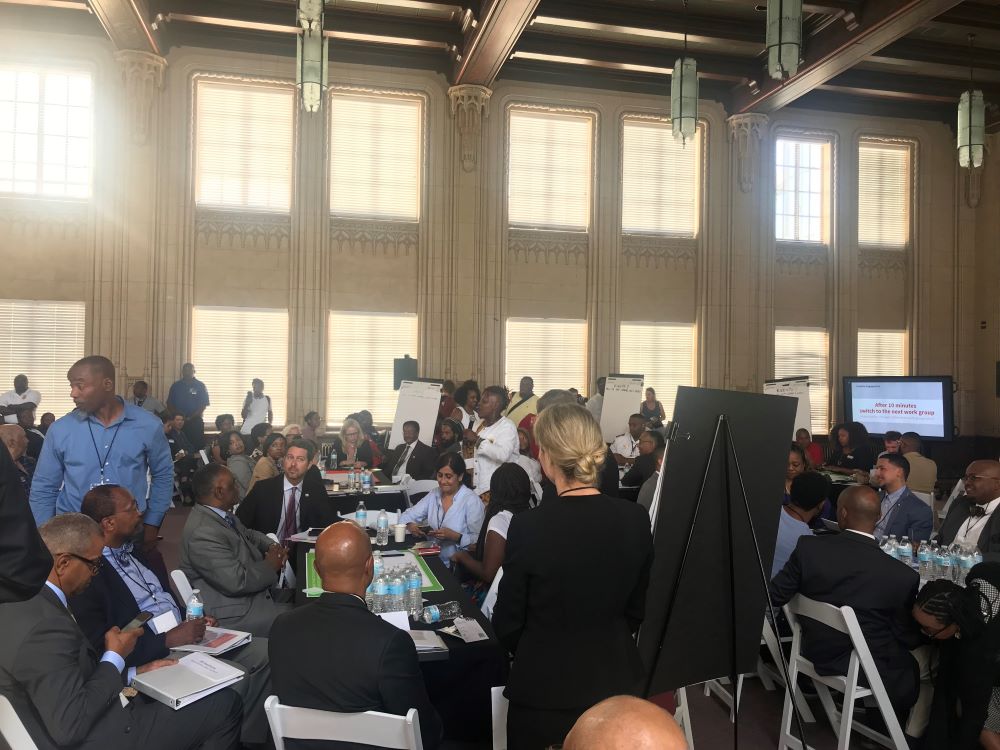At First Detention Center Task Force Meeting, A Call For Change

The first meeting of the task force contemplating the future of the Atlanta City Detention Center met Tuesday at Atlanta City Hall.
Emil Moffat / WABE
Among the most common reasons people would end up in the Atlanta City Detention Center was traffic stops.
That’s what happened to Yussif Abubakar 7 years ago. He spent 3 1/2 months in the jail. And while there, he says he experienced sickness all around him, mistreatment by officers and a lack of hot water.
“When I got out, and I heard about [that] they [are] trying to close down ACDC, I said ‘no, I’m going to be a part of it and I want to tell my story of what I’ve seen over there,’” said Abubakar, now a member of the task force looking to re-make the detention center.
The group met for the first time Tuesday at Atlanta City Hall.
Policy changes such as cash bail reform and a refusal to take ICE immigrant detainees has deeply cut the jail population. The task force is looking at ways to put the jail to better use and wants to make it more focused on rehabilitation, job skills and wellness.
“We could be a one-stop shop in that city detention center for all the services that an individual would need to be successful and not go to jail,” said Natalie Hall, a Fulton County Commissioner and member of the task force.
At this particular meeting, public comment was limited to written questions on notecards. But as task force members met in small groups during the meeting, members of the public called for change.
“I would like them to shut it down and do something great with it. Do like a vocational program for young people,” said David Dixon of Atlanta who like Abubakar, has spent time on the inside of the detention center. “We need jobs, we need housing and we need all the help we can get to shut that down and do better.”
Joy Martin said says she supports turning the jail into a community resource center and has been following developments closely.
“We have poverty, we have homelessness, we have mental illnesses,” she said. “We’ve been using our prisons and jails to house people, and that is not the way to make changes.”
The task force is set to gather four more times before final recommendations are delivered to Atlanta’s mayor in February.








